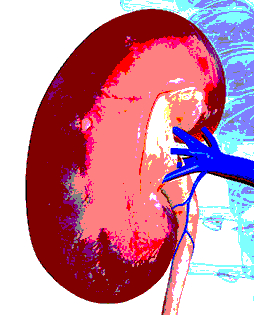Pig kidney breaks record
 A genetically modified pig kidney has been functioning successfully in a human for more than a month.
A genetically modified pig kidney has been functioning successfully in a human for more than a month.
A historic procedure was recently performed by researchers at NYU Langone Health in New York.
In this case, the recipient, Maurice Miller, had been declared brain-dead due to complications from a brain tumour biopsy, but received the pig kidney on July 14th.
The decision to undertake this experimental procedure was made by Miller's family, as his aggressive brain cancer prevented him from becoming a traditional organ donor.
To enhance the compatibility of the pig kidney, the researchers used a genetically modified pig lacking a gene responsible for producing a carbohydrate called alpha-gal.
This carbohydrate is foreign to humans and typically triggers immune rejection.
Additionally, they transplanted the pig's thymus, an organ crucial for immune system regulation, into Miller and administered immune-suppressing medications.
The transplanted kidney began producing urine immediately, and for 32 days, Miller's blood levels of creatinine, an indicator of kidney function, remained within the normal range. Importantly, biopsies showed no signs of organ rejection.
This success follows four previous pig-to-human kidney transplants, all conducted on brain-dead individuals maintained on life support.
The longest functioning kidney in these prior cases lasted for seven days, a record that has now been surpassed by the NYU Langone Health team.
Despite this achievement, concerns about the transmission of viruses between animals and humans persist in xenotransplantation, following the death of a recipient who received a genetically modified pig heart due to complications related to the porcine cytomegalovirus.
The NYU team intends to continue monitoring the pig kidney for another month before concluding the study, reaching a critical milestone in determining the viability of xenotransplantation for human clinical trials.
While challenges remain, this research offers hope for addressing the critical organ shortage crisis.
More details are accessible here.








 Print
Print